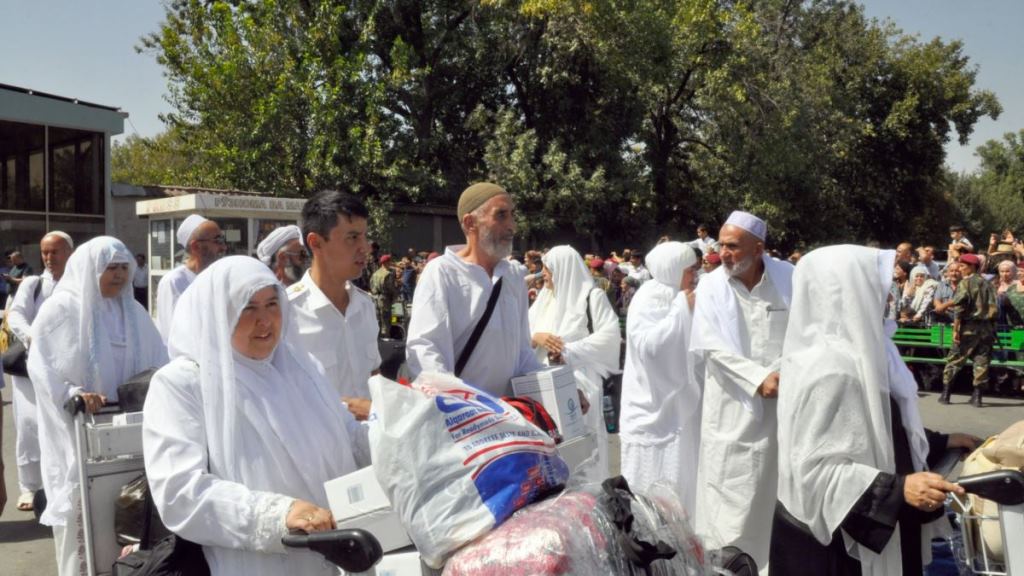For the first time in three years, Saudi Arabia has permitted foreign nationals, including Muslims from Tajikistan, to perform the Hajj this year.
This year, the Hajj will take place in July, Tajik authorities have not yet discussed the issue of sending pilgrimages to Saudi Arabia as they have not yet received an official invitation from Saudi Arabia, Afshin Muqim, a spokesman for the Committee on Religious Affairs under the Government of Tajikistan (CRA), told Asia-Plus in an interview.
Asked about the cost of the Hajj for Tajik Muslims, he said it has not changed over the past decade and amounted to US$3,700 – US$3,720.
Muqim noted that there will be no new list of pilgrims this year. “5,000 persons who were put on the list made in 2019 could not perform Hajj due to pandemic restrictions that forced two years of drastically pared-down pilgrimages. “They were supposed to perform the pilgrimage back in 2020, therefore, they will be sent first,” Muqim added.
As far as age restrictions are concerned, the CRA for the first time introduced age restrictions on those who want to perform the Hajj in 2010. Only citizens aged 18 to 80 were able to perform the Hajj.
In April 2015, Tajik authorities introduced new age restrictions. Citizens under the age of 35 were no longer allowed to perform the Hajj.
In 2016, the new age restriction were instituted raising the age limit for 39 to 40.
The aim of the decision to introduce new age restrictions is reportedly to give older people an opportunity to achieve their dream to perform the Hajj.
In 2011, the CRA designed a new Hajj uniform; men don two-piece suits, while women wear long-sleeved dresses complete with headscarves. The Tajik Hajj uniform is embroidered with the country’s symbols.
Meanwhile, Saudi Arabia said on April 10 it will permit 1 million Muslims from inside and outside the country to participate in this year's Hajj, a sharp uptick after pandemic restrictions. Usually, about 2.5 million people took part in this world's largest religious gathering.
The pilgrimage, which will take place in July, will be limited to vaccinated Muslims under age 65, the statement said.
Those coming from outside Saudi Arabia, who must apply for hajj visas, will this year also be required to submit a negative Covid-19 PCR result from a test taken within 72 hours of travel.
Each year, Saudi Arabia welcomes millions of Muslims from abroad traveling on Umrah and Hajj. Hajj, one of the five pillars of Islam, is a pilgrimage to Mecca which adult Muslims must make at least one in their lifetime, provided they are physically and financially able. The Hajj is a demonstration of the solidarity of the Muslim people, and their submission to God. The pilgrimage occurs from the 8th to 12th day of Dhu al-Hijjah, the 12th and last month of the Islamic calendar. Because the Islamic calendar is a lunar calendar, eleven days shorter than the Gregorian calendar, the Gregorian date of the Hajj changes from year to year.




